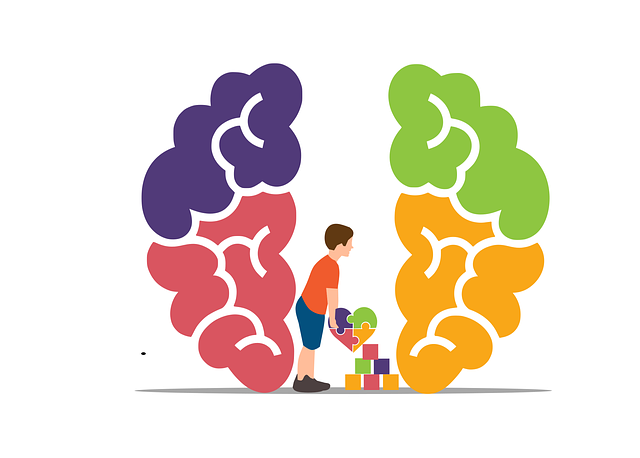Mood regulation is a critical aspect of mental health, with strategies like mindfulness, CBT, exercise, diet, and sleep aiding in emotional well-being. Littleton Sexual Addiction Therapy (LSAT) specializes in teaching robust mood regulation skills to prevent burnout and enhance resilience in personal and professional life. Their holistic approach combines individual therapy, community outreach, and self-care routines to help clients manage stress, understand behaviors, and make lasting positive changes. Adopting self-care practices alongside tailored support from LSAT ensures diverse backgrounds are respected during mood regulation journeys.
Mood regulation is a vital skill, impacting overall well-being and quality of life. This comprehensive guide explores various strategies to help individuals navigate and manage their emotional states effectively. From understanding the fundamentals of mood regulation to adopting common practices like therapy (even highlighting Littleton Sexual Addiction Therapy as a specialized approach) and integrating self-care, we offer practical insights for achieving sustained emotional balance.
- Understanding Mood Regulation and Its Significance
- Common Strategies for Effective Mood Management
- The Role of Therapy in Mood Regulation: A Focus on Littleton Sexual Addiction Therapy
- Integrating Self-Care Practices for Sustained Mood Balance
Understanding Mood Regulation and Its Significance

Understanding Mood Regulation and Its Significance
Mood regulation is a crucial aspect of mental health that involves managing and stabilizing one’s emotional state. It’s about recognizing when we’re experiencing intense emotions, understanding their triggers, and employing effective strategies to navigate them in a healthy way. This process is essential for maintaining overall well-being and fostering strong relationships. At Littleton Sexual Addiction Therapy, our therapists are trained to help individuals develop robust mood regulation skills, which can prevent burnout and enhance resilience in both personal and professional settings.
Effective mood regulation plays a pivotal role in mitigating risks associated with mental health crises. Professionals in the field, such as those engaged in Risk Management Planning for Mental Health Professionals, emphasize the importance of early intervention and proactive strategies. Burnout Prevention is another key concern, as mindful practices like Mindfulness Meditation have proven to reduce stress and improve emotional regulation. By integrating these techniques into their daily lives, individuals can better navigate life’s challenges and maintain a sense of balance and clarity.
Common Strategies for Effective Mood Management

Managing one’s mood is a vital aspect of overall well-being, and various strategies can help individuals achieve emotional balance. One effective approach is to seek professional support from therapists who specialize in specific areas, such as Littleton Sexual Addiction Therapy, offering tailored solutions for unique challenges. This form of therapy provides a safe space for individuals to explore and understand their emotions, enabling them to develop healthy coping mechanisms.
Common strategies include mindfulness practices, which encourage staying present and engaged with one’s senses, helping to calm the mind and reduce anxiety. Additionally, cognitive-behavioral therapy (CBT) is widely recognized for its ability to challenge negative thought patterns and replace them with more positive, realistic perspectives. Engaging in regular physical activity, maintaining a balanced diet, and ensuring adequate sleep are also essential mood regulators, as they stimulate the release of endorphins and promote emotional resilience.
The Role of Therapy in Mood Regulation: A Focus on Littleton Sexual Addiction Therapy

Therapy plays a pivotal role in mood regulation, offering powerful tools to manage and improve emotional well-being. One therapeutic approach gaining recognition for its effectiveness is Littleton Sexual Addiction Therapy (LSAT). This specialized form of treatment addresses sexual addiction and compulsive behaviors, providing individuals with strategies to regain control over their lives.
LSAT focuses on helping clients develop a healthier relationship with sexuality while incorporating self-care routine development for better mental health. By combining individual therapy sessions with community outreach program implementations, LSAT creates a supportive network. Through this holistic approach, individuals not only learn stress reduction methods but also gain insights into their behaviors, enabling them to make lasting changes and lead more fulfilling lives.
Integrating Self-Care Practices for Sustained Mood Balance

In the quest for sustained mood balance, integrating self-care practices emerges as a pivotal strategy. Beyond momentary coping mechanisms, self-care is an ongoing process that involves nurturing both mind and body. This encompasses activities such as regular physical exercise, sufficient sleep, and mindful eating—all of which are backed by scientific research as effective mood regulators. By prioritizing these foundational aspects, individuals can better manage stress, enhance emotional resilience, and create a solid foundation for their mental well-being.
For those seeking deeper transformation, exploring therapeutic modalities like Littleton Sexual Addiction Therapy can be immensely beneficial. This tailored approach not only addresses specific challenges but also fosters inner strength development. Coupled with self-care practices, it enables individuals to navigate life’s complexities with enhanced emotional intelligence and a strengthened sense of self. Moreover, cultivating cultural sensitivity in mental healthcare practice, as advocated by the Mental Health Policy Analysis and Advocacy movement, ensures that these transformative journeys are inclusive and respectful of diverse backgrounds, further enriching the overall process of mood regulation.
In conclusion, mood regulation is a multifaceted process that involves understanding and managing our emotional states. By employing common strategies such as mindfulness, exercise, and social connections, individuals can effectively navigate their moods. The article has highlighted the unique benefits of Littleton Sexual Addiction Therapy in addressing specific emotional challenges, while also emphasizing the importance of integrating self-care practices for long-term mood balance. Through a combination of these approaches, folks can foster resilience and enhance their overall well-being.













